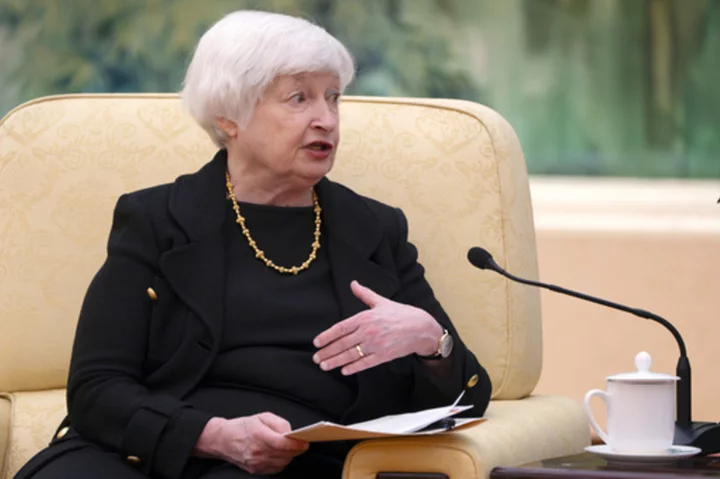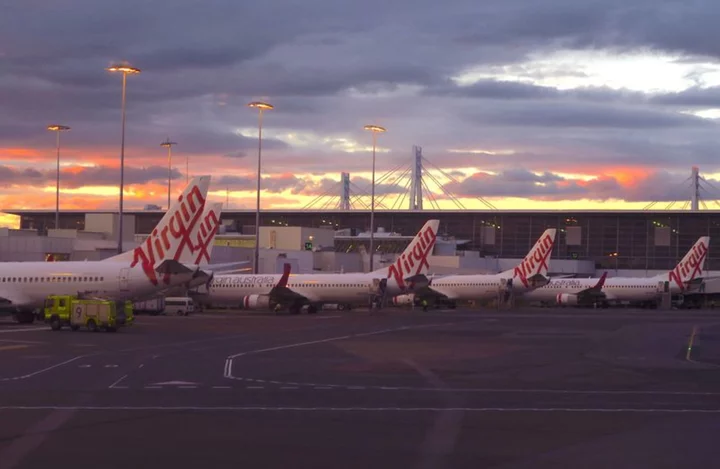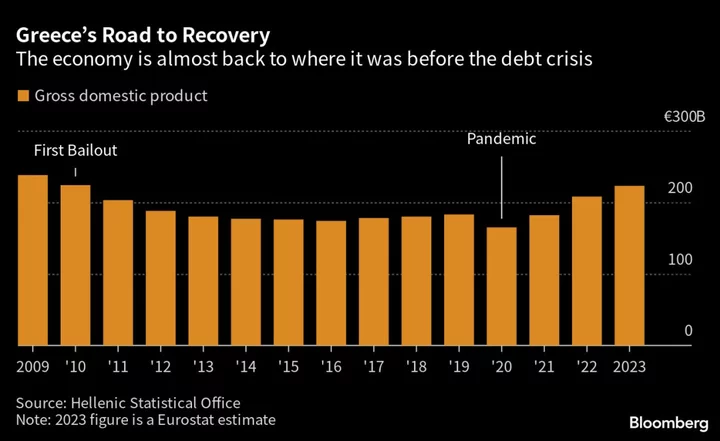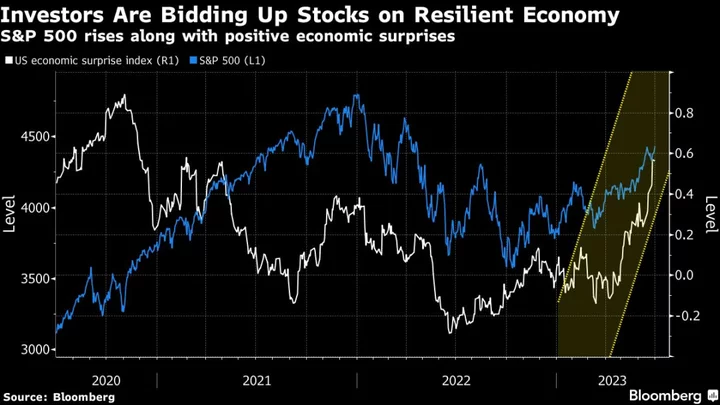BEIJING (AP) — Treasury Secretary Janet Yellen appealed to China's No. 2 leader not to let frustration over U.S. curbs on access to processor chips and other technology disrupt economic cooperation during a visit Friday aimed at improving strained relations.
Meeting with Premier Li Qiang, Yellen said Washington and Beijing have a duty to cooperate on issues that affect the world. She appealed for “regular channels of communication” at a time when relations are at their lowest in decades due to disputes over technology, security and other irritants.
Yellen is one of several senior U.S. officials due to visit Beijing to encourage Chinese leaders to revive interactions between governments of the two largest economies. Treasury officials said earlier she wouldn't meet with Chinese leader Xi Jinping and no breakthroughs were expected.
Yellen defended “targeted actions,” a reference to curbs on Chinese access to advanced processor chips and other technology, saying they are needed to protect national security.
“You may disagree,” Yellen said. “But we should not allow any disagreement to lead to misunderstandings that needlessly worsen our bilateral economic and financial relationships.”
Yellen appealed for “healthy economic competition," a reference to complaints Beijing is stepping up use of subsidies and market barriers to protect its companies.
“A fair set of rules will benefit both of our countries,” Yellen said. “We also face important global challenges where the United States and China have a duty to both countries but also to the world to cooperate.”
Li expressed optimism that conditions might improve but gave no indication of possible changes in Chinese policies that have irked Washington and its trading partners.
Referring to a rainbow that was spotted after Yellen's plane landed Thursday in rainy weather, Li said, “after a round of wind and rain, we will definitely see more rainbows.”
The Chinese finance ministry called Yellen’s visit a “concrete measure” toward carrying out an agreement by Xi and President Joe Biden during a meeting in November to improve relations. It mentioned no initiatives and called on Washington to make the first move.
“There will be no winners in trade wars or ‘decoupling and broken chains,’” the ministry said in a statement. “We hope the United States will take concrete actions to create a favorable environment for the healthy development of economic and trade relations.”
U.S. curbs on Chinese access to technology threaten to delay or derail the ruling Communist Party’s efforts to develop telecoms, artificial intelligence and other technologies. Xi accused Washington in March of trying to hamper China’s development.
Beijing has been slow to retaliate, possibly to avoid disrupting its own tech industries. But this week, the government announced unspecified controls on exports of gallium and germanium, metals used in making semiconductors and solar panels. That announcement jolted South Korea and other countries that import from China.
Earlier Friday, Yellen criticized China's treatment of U.S. companies during a meeting with businesspeople.
U.S. and other foreign companies are uneasy about their status in China following raids on consulting firms, the expansion of a national security law and calls by Xi and other officials for greater self-sufficiency.
“I am communicating the concerns that I’ve heard from the U.S. business community — including China’s use of non-market tools like expanded subsidies for its state-owned enterprises and domestic firms, and barriers to market access for foreign firms,” Yellen said, according to a transcript released by her department.
Yellen again rejected suggestions Washington is trying to decouple, or separate the U.S. economy from China’s.
Businesspeople have warned the world’s two biggest economies might split into separate markets with incompatible products as Beijing and Washington tighten trade controls and tell companies to reduce reliance on each other. They say that will hurt economic growth and innovation.
″I have made clear that the United States does not seek a wholesale separation of our economies,” Yellen told the businesspeople. “A decoupling of the world’s two largest economies would be destabilizing for the global economy, and it would be virtually impossible to undertake.”
Yellen defended U.S. export curbs as “premised on straightforward national security considerations and not undertaken to gain economic advantage over China.”
Also Friday, Yellen met with the outgoing governor of China's central bank, Yi Gang, and former Vice Premier Liu He, previously her counterpart in finance talks, according to the Treasury.
Secretary of State Antony Blinken, met with top leader Xi last month in the highest-level U.S. visit to Beijing in five years. The two agreed to stabilize relations but failed to agree on improving communications between their militaries.
The latest flareup came after President Joe Biden referred to Xi as a dictator. The Chinese government protested, but Biden said his blunt statements are “just not something I’m going to change very much.”
Ties became especially testy after a Chinese surveillance balloon flew over the United States in February and was subsequently shot down.
Biden’s climate envoy, John Kerry, is scheduled to become the next U.S. official to visit China, next week. China and the United States are the world’s top emitters of climate-changing carbon, making whatever steps they take critical.
The trip will be Kerry’s first to China since it broke off climate discussions with the U.S. in August in retaliation for then-House Speaker Nancy Pelosi’s travel to Taiwan.









